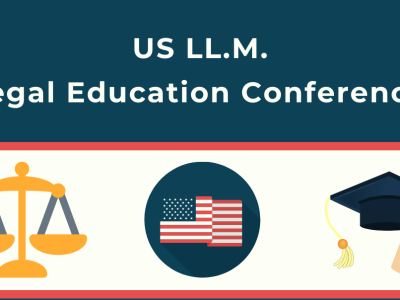Sixty years ago this month, the United Nations adopted the Universal Declaration of Human Rights. Drafted in the aftermath of World War II, this landmark document touched on everything from asylum, freedom of expression, and the right to education to issues of discrimination, arbitrary arrest, torture, the right to a fair trial, and even paid holidays.
Today, thousands of lawyers around the world work to uphold the principles of this declaration, and the national policies and international instruments to ensure basic human rights, including the European Convention on Human Rights and its American, African, Arab, and - most recently - Southeast Asian (ASEAN) counterparts. Many others work on related issues like refugee law, gender equality, and international criminal justice.
Even though human rights is not a field of law one chooses expecting a Wall Street-sized paycheck or a partnership in a white shoe law firm, this is not to suggest that human rights lawyers lack ambition
"Most of the students are interested in doing something in the field, which is to say to make a difference in the world in terms of affecting what I would call a social justice agenda," says John Packer, director of the Human Rights Centre at Essex University, one of first universities in the world to offer an LL.M. in the field.
Packer says an International Human Rights LL.M. can help advance a lawyer's career by sharpening their analytical skills and providing a wider conceptual framework.
[See the Top 10 LL.M. programs for Human Rights Law]
"Maybe they were a protection officer in the field somewhere, and they were dealing with refugees in say, West Africa," says Packer of a possible student. "But did they have a solid understanding of where this refugee system came from? How it developed? What its potential is for elasticity and greater effectiveness?"
According to Bridget Arimond, director of the International Human Rights LL.M. program at Northwestern University School of Law, most students begin her program having a few years of experience under their belt.
"Our students tend to be lawyers who have worked for a short while in something related to human rights, rule of law, access to justice, that kind of thing," says Arimond.
"Occasionally, we get someone with more than a few years working as a lawyer, but generally, they tend to be three, four, five, six years out (of their first law degree)," she adds. "The preference is for people with some work experience."
LL.M. programs in human rights law: For non-lawyers, too
But perhaps more than any other field of law, human rights and humanitarian law attracts students without a formal legal degree or legal background.
"At the international level being a qualified lawyer accredited to a bar association is of limited significance, unless of course the employment is with a tribunal, where a legal qualification may not only be desirable, but indispensable," says William Schabas, director of the Irish Centre for Human Rights at the National University of Ireland, Galway.
"But the importance of a legal qualification should not be exaggerated," says Schabas. "Employers are looking for intelligent and versatile individuals, with a variety of skills and experience. Being able to say one is a lawyer is not insignificant, but it is not decisive either."
The Geneva Academy of International Humanitarian Law and Human Rights enrolls several Master's students each year who are not trained lawyers.
"If you studied constitutional or commercial law, perhaps you have mastered these subjects, but this is not really essential to understand international humanitarian law, which is quite a peculiar body of law," says Paola Gaeta, who directs the Master's program at the Geneva Academy.
"You can be a very good lawyer in private, commercial law, but not understand anything about international relations and international law," she says.
Rather than focusing on human rights, Gaeta's program deals with humanitarian law related to armed conflicts. Students take core courses in international law in armed conflicts, refugee law, peacekeeping, and international criminal law.
"It's a program that tends to give the full picture," says Gaeta. "I would not suggest it to people who want to specialize in human rights. For this, there are other universities which are more focused on Human Rights Law and International Criminal Law."
Graduates of the humanitarian law program often land jobs in Geneva, at places like the International Committee of the Red Cross. Like with graduates of human rights LL.M. programs, many students return to their home countries or into the field, and go to work for organizations or institutions in developing countries that are dealing with these issues.
Some programs offer a regional concentration on the human rights, such as the Africa focus of the University of Pretoria's Centre of Human Rights, the coverage of the Mediterranean region by the University of Malta, and the European focus of the LL.M. program at Utrecht University.
Growing demand
Unfortunately, human rights abuses continue to happen on a daily basis around the world; some make headlines while many more go unreported. This means that the demand or "market" for people trained in human rights law is unlikely to disappear.
"The field continues to grow," says William Schabas. "The number of LL.M. programs in human rights, and of students interested in them, is constantly expanding. The creation of new institutions and the growth of existing ones accounts for this. This will not change anytime soon."
For more information about the programs mentioned above, and several other law schools offering LL.M. programs in Human Rights Law, please follow one of the links below.
Image: "European Court of Human Rights (Strasbourg)" by CherryX / Creative Commons (cropped)










